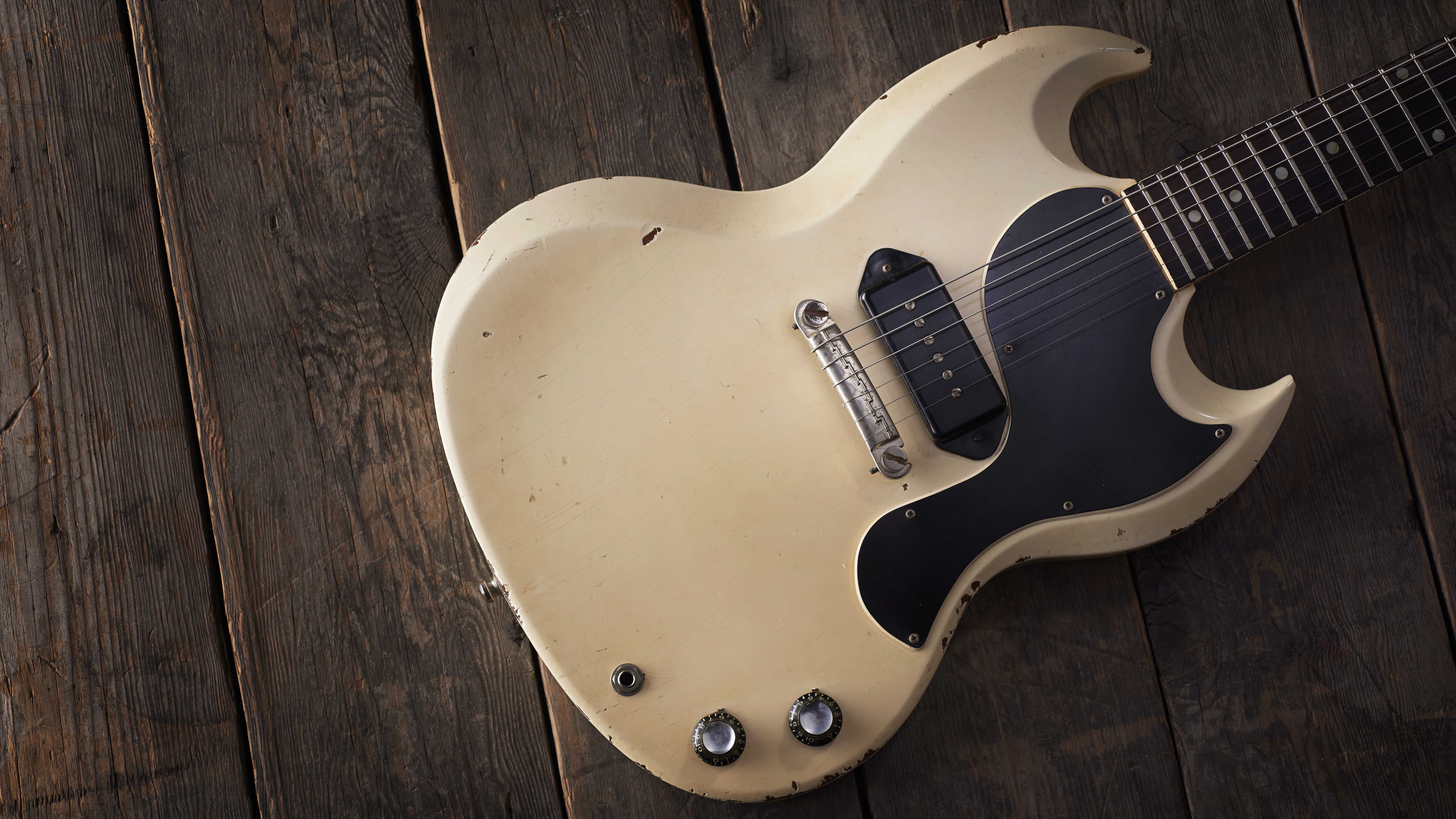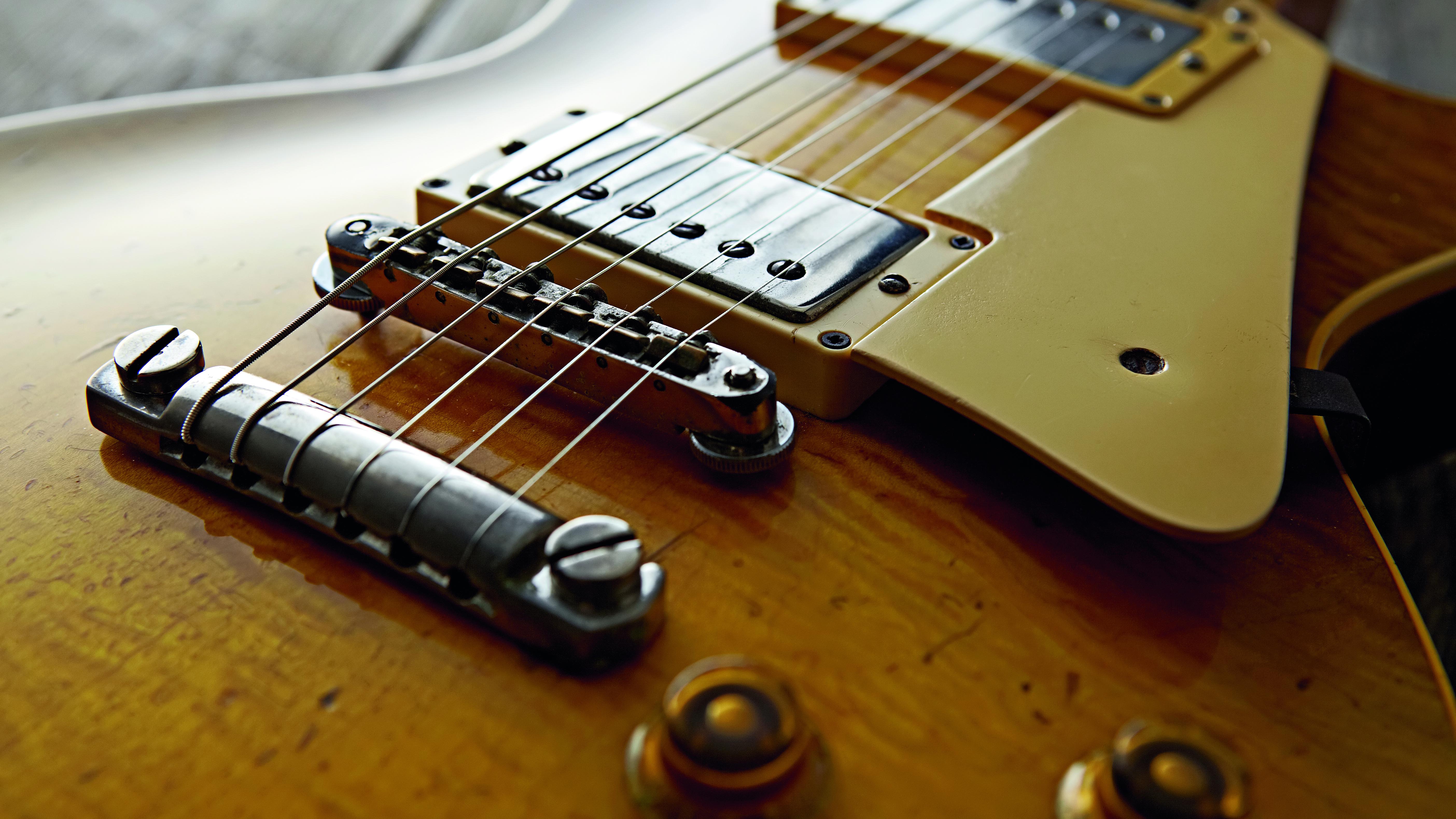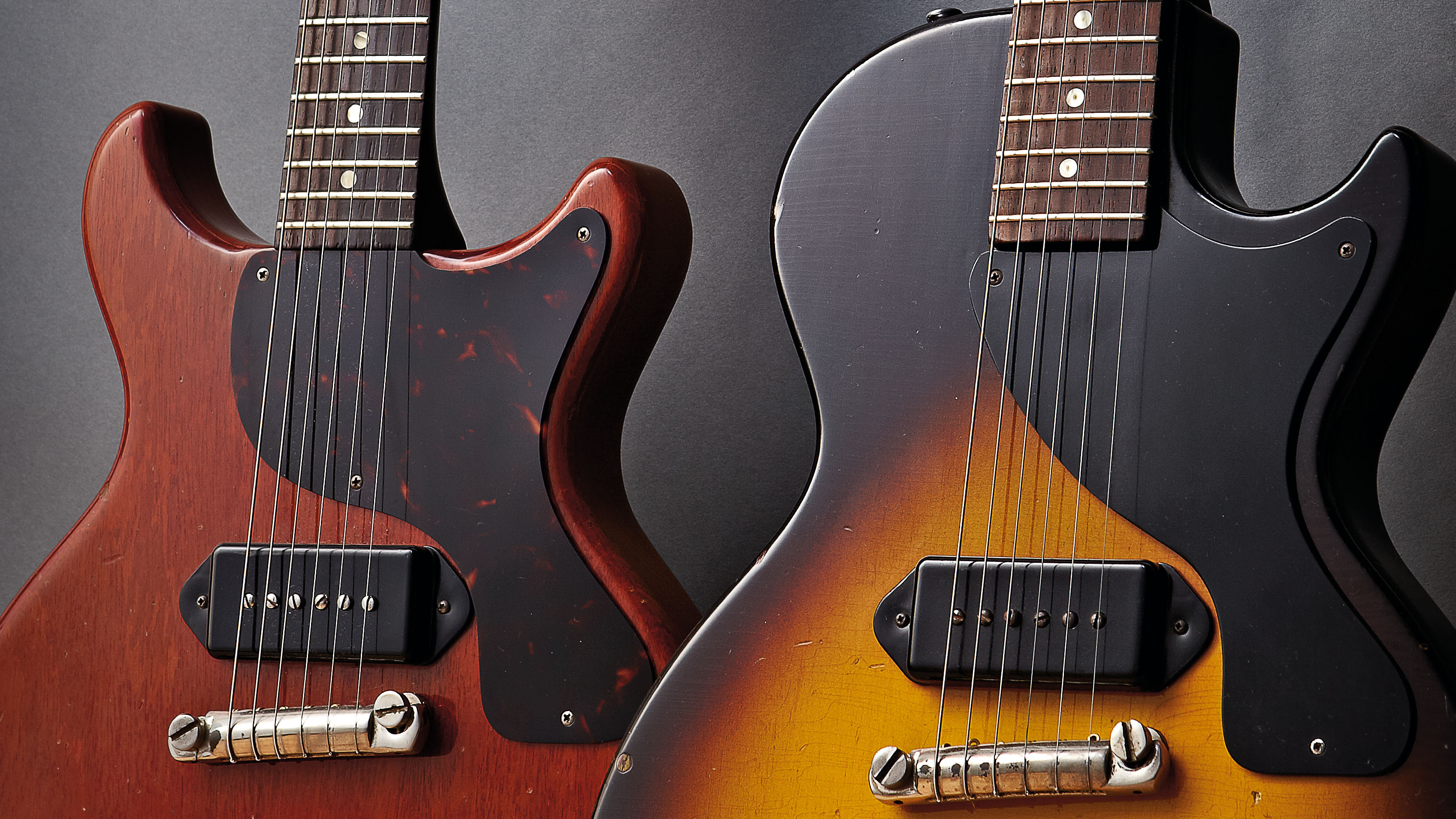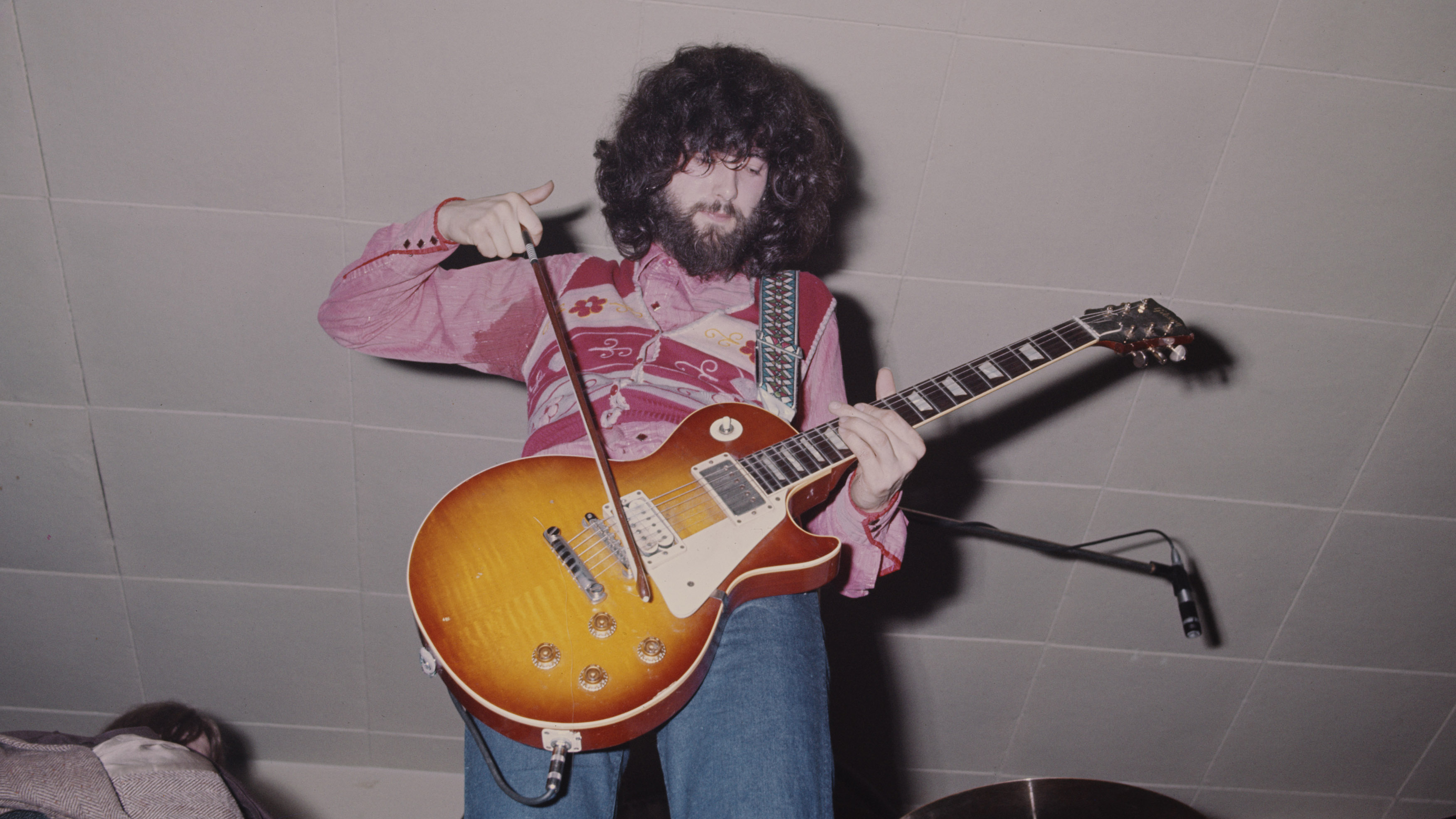
Joe Bonamassa, Billy Gibbons and Zakk Wylde swear by it, so did Jimmy Page (in the early days of Zeppelin), Jeff Beck and Duane Allman. Some dismiss it and recently the Gibson Gazette has been digging into whether top-wrapping a Stop Bar tailpiece is actually better than the traditional method of stringing straight through it on an electric guitar. So, are we closer to getting a defining answer?
It's important to define both what top-wrapping is and who it's going to apply to. If you own a Les Paul, SG or ES-335 it's likely to apply to you because those guitars tend to feature Stop Bar tailpieces, in combination with a tune-o-matic bridge. The Stop Bar anchors your guitar strings with two posts holding it in position, and these can be raised and lowered.

Plenty of other brands use the Stop Bar design (I top wrap a Gordon Smith GS-1 myself) so this can apply to them too. Top-wrapping involves threading the string from the front bridge side of the Stop Bar instead of the traditional way from behind it, the string then passes back over the bar.
To top-wrap you'll need a longer length of string than the traditional method so it's best to try it when fitting a fresh set. As well as physical contact between the string and the top of the bridge, it also reduces the break angle over the saddle. This can be accounted for slightly by dropping the Stop Bar down low to touch the body, but the break angle is still reduced in comparison to the traditional method.
You can also do this with a wraparound bridge that doesn't have a tailpiece – such as a Les Paul jr and we have a step-by-step wraparound bridge setup guide here.

The 'decking' of the tailpiece by dropping it right down is said to help increase sustain because it provides closer contact between string vibration and body wood through the tailpiece.
"In order to make the guitar feel a little bit slinkier and not so difficult to play, we borrow the technique invented by Jimmy Page and Billy Gibbons; you top-wrap over the stud, which lessens the angle over the bridge," explains Bonamassa in the video above - illustrating with the late Bernie Marsden's '59 'Beast' Les Paul Standard he was borrowing at the time.
"So it's a much nicer, slinkier feel. But it also retains the big heaviness of the string so when you hit hard you're not playing out of tune."
The idea your top-wrapped guitar – especially one with heavier gauge strings – will feel slinkier to play (from a longer string length) suggests less tension, but as the Gibson Gazette points out, the YouTuber Dylan Talks Tone actually measured the effects scientifically and contrary to previous perceptions, he found top-wrapping actually creates more tension for string bends. Gah!
Feel is subjective, but the perceived negative effects of top-wrapping can vary from guitar to guitar too. You may experience intonation issues without a guitar setup to account for the switch to top-wrapping. Physically the strings are rubbing on the Stop Bar too, increasing the chance of physical wear.
Cardinal Black guitarist Chris Buck waded into the debate on his excellent Friday Fretworks YouTube series below, touching on the way the debate has raged across Les Paul forums for some time. The fact is there's no definitive answer – a common theme in the guitar world – and experience will differ from player to player and their guitars.
Even Gibson won't give us a definitive answer: Chris found a top-wrapped a Les Paul in the company's own early 1956 product catalogue but the Les Paul on the next page was strung the other way!
"All I can do is speak from personal experience," says Chris. "And in the last two years I've been top-wrapping some of my Les Paul-style guitars, for me at least – whether it's psychosomatic or not, who knows, strings do feel a little bit more pliable. As though there is a little bit less tension in the strings."

For what it's worth, I found the same with my Gordon Smith GS1. And that was enough for me to stick with it for that guitar – I just like that slinkier feel. The only way for you to find out for yourself is to try it. It will only cost you the price of a set of strings.
You could take the measurements of your pre-top-wrapping Stop Bar height on the bass and treble sides before making the change so if you decide to go back to the traditional method, you can so easier.







